Can Stress & Anxiety Cause Problems With Your Skin?
With Election Day only hours away, citizens across the nation are feeling stressed and anxious. But did you know that stress and anxiety can cause lasting, detrimental effects to your skin?
 Psychodermatology. This one word can be defined as the study and treatment of skin disorders and concerns originating from one's emotions. This branch of dermatology is rapidly growing as more specialists begin to realize the connection between the mind and the skin. Karen Mallin, PsyD, is an instructor in psychiatry and behavioral sciences at the University of Miami and Jackson Memorial Hospital in Miami, Florida. She is one who strongly believes that the mind and skin are connected on many different levels. "There are a lot of nerve endings connected to the skin, which is wrapped around the organs. So as emotions are played out neurologically, they can be expressed through the skin just as stress can be expressed through gastrointestinal symptoms, increased anxiety, or hypertension," Mall
Psychodermatology. This one word can be defined as the study and treatment of skin disorders and concerns originating from one's emotions. This branch of dermatology is rapidly growing as more specialists begin to realize the connection between the mind and the skin. Karen Mallin, PsyD, is an instructor in psychiatry and behavioral sciences at the University of Miami and Jackson Memorial Hospital in Miami, Florida. She is one who strongly believes that the mind and skin are connected on many different levels. "There are a lot of nerve endings connected to the skin, which is wrapped around the organs. So as emotions are played out neurologically, they can be expressed through the skin just as stress can be expressed through gastrointestinal symptoms, increased anxiety, or hypertension," Mall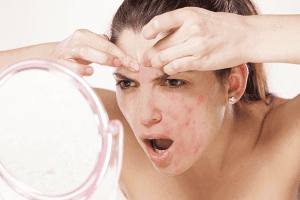 in explained. But what are the specific skin care concerns that can be expected as a result of stress and anxiety? Anxiety causes your body to begin to tense up. When this happens, stress hormones such as cortisol are released. These hormones cause an increase in the natural oil production in the skin. When the skin becomes too oily, it can cause acne, eczema, psoriasis, and other minor skin concerns such as rashes and hives to spike up. Stress and anxiety can also trigger autoimmune reactions, which over time can lead to diseases such as alopecia, a hair loss disorder caused by the immune system attacking hair follicles.
in explained. But what are the specific skin care concerns that can be expected as a result of stress and anxiety? Anxiety causes your body to begin to tense up. When this happens, stress hormones such as cortisol are released. These hormones cause an increase in the natural oil production in the skin. When the skin becomes too oily, it can cause acne, eczema, psoriasis, and other minor skin concerns such as rashes and hives to spike up. Stress and anxiety can also trigger autoimmune reactions, which over time can lead to diseases such as alopecia, a hair loss disorder caused by the immune system attacking hair follicles.  Dermatologists believe that many of these skin care concerns stemming from stress and anxiety can drastically improve upon treatment with antideppresants, relaxation therapy, and mood counseling. Studies have revealed that at least 30% of dermatology patients have some underlying psychological problem that often goes unaddressed, at least on initial visit. But if addressed, it can have a positive and powerful impact in improving the skin condition, according to Shelley Sekula-Gibbs, MD, a clinical assistant professor of dermatology at Baylor College of Medicine.
Dermatologists believe that many of these skin care concerns stemming from stress and anxiety can drastically improve upon treatment with antideppresants, relaxation therapy, and mood counseling. Studies have revealed that at least 30% of dermatology patients have some underlying psychological problem that often goes unaddressed, at least on initial visit. But if addressed, it can have a positive and powerful impact in improving the skin condition, according to Shelley Sekula-Gibbs, MD, a clinical assistant professor of dermatology at Baylor College of Medicine.
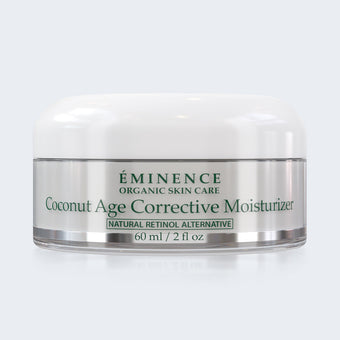
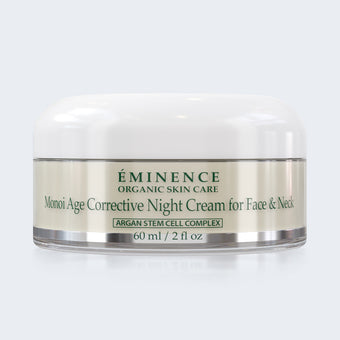
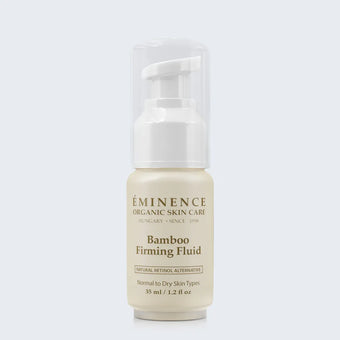
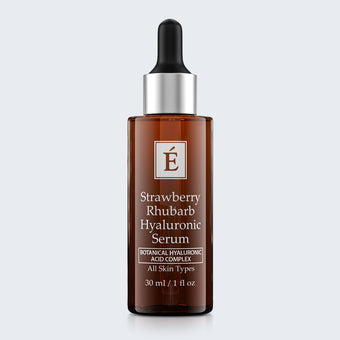



Leave a comment
Please note, comments need to be approved before they are published.